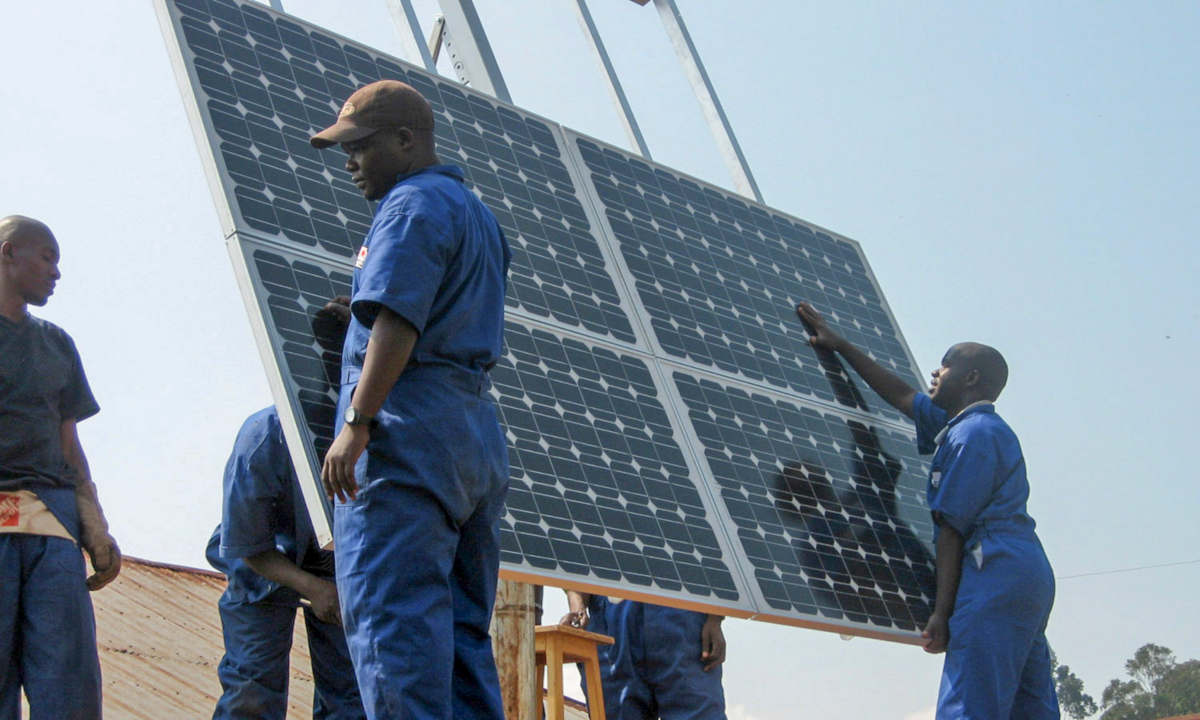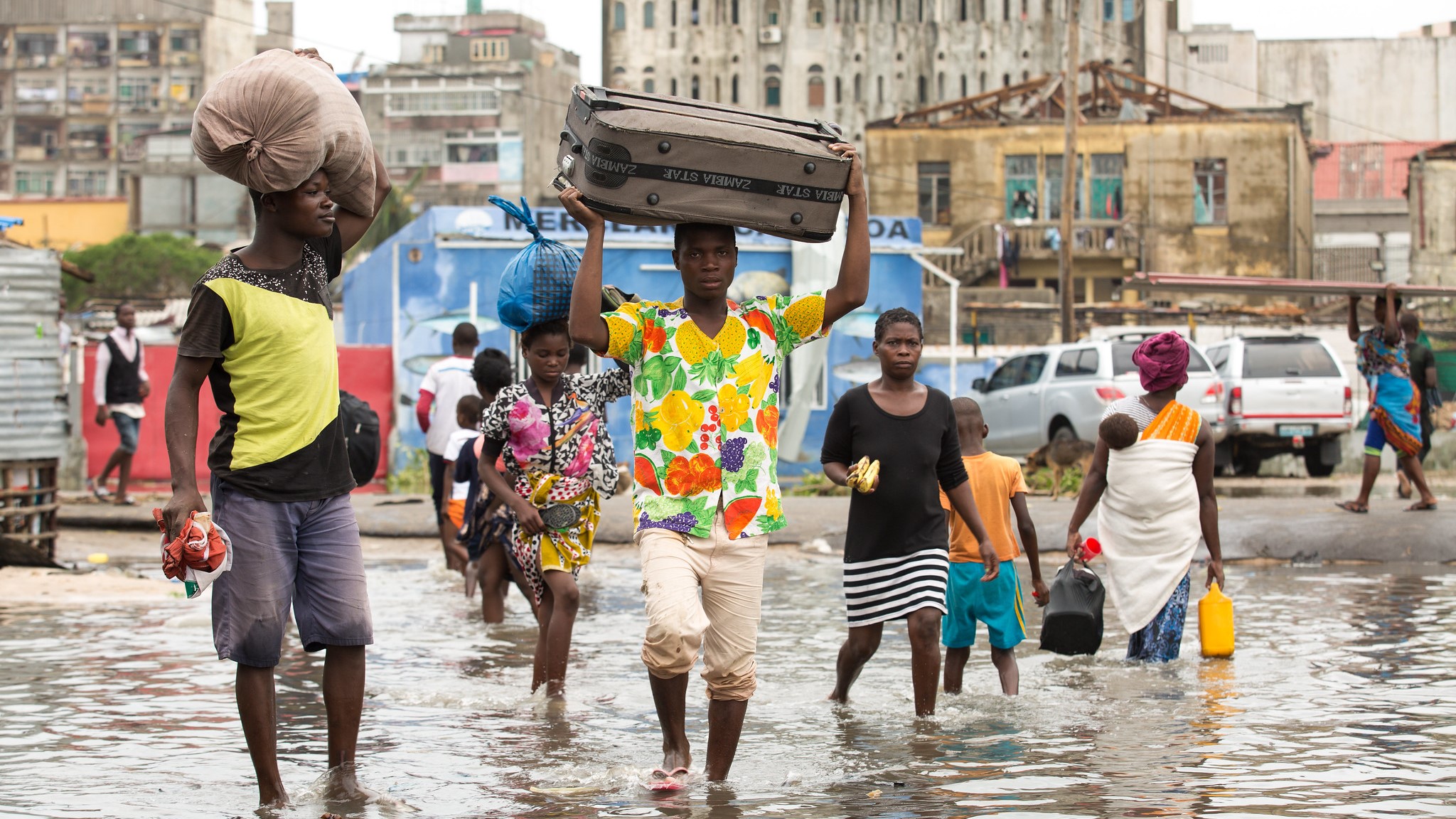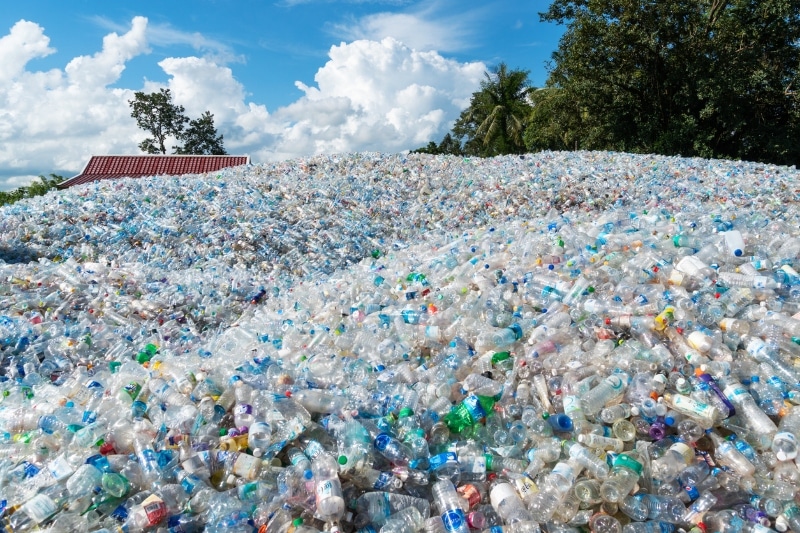Alejandra Padin-Dujon writes about the global drive for liquefied natural gas (LNG) production and the geopolitics behind the contentious “transition fuel”.
The Russian invasion of Ukraine in 2022 sent a shockwave through global oil and gas supply chains, leaving many countries reeling. With an 80% reduction in Russian gas exports to the EU over the course of the year, natural gas prices skyrocketed and importing countries scrambled to find new suppliers, curb demand, or invest in renewable energy.
The lion’s share of Europe and Asia’s substitute liquefied natural gas (LNG) came from the United States and Qatar. However, several developing countries are eyeing medium-term opportunities for their own LNG production: namely, Senegal, Mauritania, Mozambique, and Tanzania in Africa, and Trinidad & Tobago in the Caribbean. In pursuing these opportunities, each country has made a gamble with the future of its international political standing and economic development. Is this a risk worth taking?
What is LNG?
LNG is a frequently cited as a Paris Agreement-compatible fossil fuel. This means that some adoption of LNG (where the ideal percentage of LNG in the global energy mix is not agreed) would allegedly facilitate the Paris Agreement goal to limit global warming to 1.5ºC or “well below” 2ºC above preindustrial levels. LNG would help countries reduce their emissions, as LNG emits less carbon coal and oil, while advances and investments are made in the world of renewable energy. As a result, it is sometimes called a “transition fuel” or “bridge fuel.”
LNG projects are emerging in Africa and the Caribbean
Senegal and Mauritania are on the cusp of a joint “gas boom” heralded by the Greater Tortue Ahmeyim export facility, operated by BP. A Mozambican project involving an onshore plant and offshore production, financed in large part by French company TotalEnergies, is resuming after being stalled by jihadist violence near the site. Tanzania has construction of an LNG export terminal in the works, as well as an agreement with Chinese state-owned company CNOOC for offshore oil and gas exploration. Finally, Trinidad & Tobago is restarting semi-idle LNG facilities that require more feedgas, going so far as to encourage other Caribbean countries to collaborate on LNG production to maximize the production potential of these existing facilities.
According to the International Energy Agency, in 2023, “LNG supply growth will be primarily supported by the return of the Freeport LNG terminal in the United States, improving feedgas availability in Trinidad & Tobago, and the ramp-up of production at Mozambique’s Coral South FLNG.” The contributions, then, that African and Caribbean countries intend to make the LNG landscape are underreported, but not trivial. Business Insider Africa goes so far as to claim that as “Africa emerges as a key supplier of LNG to meet Europe’s growing demand, with Tanzania positioning itself as a significant player.” (Notably, however, the question of Europe’s “growing” demand is far from a foregone conclusion—see next section—nor is Tanzania the most important of the emerging African LNG suppliers.)
Climate champions risk their Paris Agremeent credibility
LNG is a fossil fuel, and the terms “transition fuel” or “bridge fuel” remain controversial. First, there is increasing recognition that LNG emits large quantities of methane, a non-carbon dioxide greenhouse gas, making it less preferrable from an emissions reduction perspective than originally thought. Second, LNG investment diverts finance not only from dirtier fossil fuels, but also from renewable energy.
Moreover, LNG’s ability to bridge the divide between the status quo and a lower-emissions, Paris-compatible scenario is unclear. New investments in LNG risk the entrenchment of yet another fossil fuel-based paradigm, complete with stranded assets that will be rendered obsolete as decarbonization proceeds worldwide—especially because LNG facilities are extremely difficult to repurpose for cleaner fuels like hydrogen.
As a result, investment in LNG facilities in Senegal, Mauritania, Mozambique, Tanzania, and Trinidad & Tobago threatens each country’s political legitimacy in international climate negotiations, which are critical for the successful execution of the Paris Agreement and containment of global warming. Senegal is currently the chair of the Least Developed Countries Group negotiating bloc at the international climate policy level—a group famous for their progressive calls to action on climate change—and Mauritania, Mozambique, and Tanzania are members. Trinidad & Tobago (already a major fossil fuel producer) is a member of the Alliance of Small Island States, a group equally if not more famous for cutting-edge, radical demands.
Economic opportunity or economic misstep?
Asia’s LNG demand is increasing slightly. However, as Europe increases investment in renewables, and as demand shifts away from LNG in the European power sector, European demand for LNG is declining substantially. In fact, Europe’s gas demand is forecast to decrease by 5% in 2023. As a result, a large segment of the projected global demand that African and Caribbean LNG producers may have anticipated, may never materialize. Moreover, the United States and the Middle East and Asia Pacific regions, as well-established producers with large gas reserves, are best placed to respond quickly and elastically to supply shocks.
The direction of travel regarding global decarbonization does not support new ventures into LNG, especially in economically vulnerable developing countries, either. In 2023, the EU’s Carbon Border Adjustment Mechanism went into effect, placing a tariff—a “carbon price”—on non-EU goods entering the EU on the basis of laxer environmental regulations abroad, aiming to level the playing field for European producers who are bound by higher standards (including a system of carbon allowances). In a world that is rapidly moving toward decarbonization, investing in LNG may never pay off: by the time new facilities are up and running, global markets may not only have turned away from LNG (limiting demand and leading to stranded assets), but may actively penalize countries that rely on it.
Declining European LNG demand and global decarbonization make an ecologically and politically risky bet for aspiring producers in Africa and the Caribbean, economically risky as well.
The views expressed in this post are those of the author and do not reflect those of the International Development LSE blog or the London School of Economics and Political Science.
Image credit: https://www.hippopx.com/





